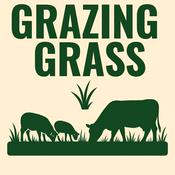Kasie Harriet is the milkmaid at Shepherd Farms, where she and her husband Jacob are building a direct-to-consumer farm business that includes raw milk, sourdough, tallow skincare, and more, while managing cows in a rotational grazing setup and learning what it really takes to run a small dairy at the family scale.
In This Episode, We Explore:
Kasie’s path from FFA and wildlife work into farm life and dairy cows
Why they pursued raw milk and how that led to buying their first family milk cow
Lessons learned from a first cow that tested positive for bacteria and how they handled it
Setting up a movable, low-cost milking stanchion and why “you don’t need a lot to do a lot”
Hand milking vs machine milking and the real-world importance of equipment that is easy to clean
Calf sharing, grafting a calf, and how that can add flexibility to dairy cow ownership
Selling excess milk, managing weekly customers, and handling jars and deposits
What to look for when buying a milk cow: testing, temperament, training, feeding history, and more
Using Facebook to educate customers, build trust, and grow a local direct-to-consumer community
Why This Episode Matters
If you are considering a family milk cow or selling raw milk direct-to-consumer, this episode walks through the practical realities that often get skipped, including cow selection, sanitation concerns, equipment choices, customer management, and the setbacks that can happen even when you do things carefully. Kasie’s story is a grounded reminder to learn, adjust, and keep moving forward.
Resources Mentioned
Keeping a Family Cow by Joann S. Grohman
Keeping a Family Milk Cow, holistic and organic (Facebook group)
Find Out More
Shepherd Farms | https://www.facebook.com/profile.php?id=100087351095567
Looking for grass-based breeders?
Explore the Grass Based Genetics directory.
Upcoming Grazing Events
Noble Profitability Essentials - Jefferson City, Mo, March 24-25, 2026
Visit our Sponsors:
Noble Research Institute
Redmond Agriculture
Grazing Grass Links
Website
Community (on Facebook)
Original Music by Louis Palfrey



